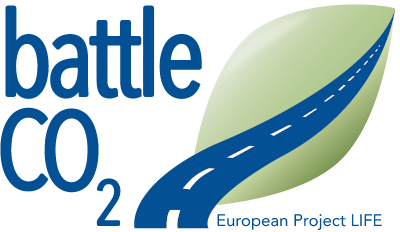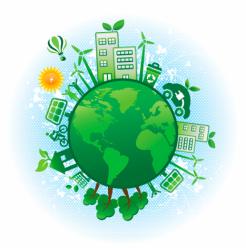The concept of circular economy has gained significant prominence, becoming more widespread and pervasive in the last ten years. Taking into account the whole product life-cycle, circular economy offers an alternative model that promotes reuse, repair, refurbishment and recycling, recuperating rare raw materials and transforming waste into a resource. Eurostat calculates that the EU households and economic activities generate about 2.5 billion tonnes of waste per year, 1.6 billion of which are not reused or recycled.
The drive towards sustainability and decarbonisation led the European Commission to launch, in December 2015, an overarching Circular Economy Package (CEP) which is currently going through the trilogue negotiation phase among the Commission, the Parliament and the European Council. Circular economy principles touch on a wide range of policy areas, ranging from emissions to renewable energies, from recycling to food waste, from the secondary materials markets to the creation of new jobs and the increase in competitiveness. In March 2017 the Commission and the European Economic and Social Committee launched the Circular Economy Stakeholder Platform, a virtual “network of networks” to facilitate policy dialogue. The Commission is also gradually launching ad-hoc strategies, such as the Waste of Electrical and Electronic Equipment (WEEE) package adopted in April 2017 and the new EU Plastics Strategy to be presented in December 2017.
For the transition towards a more circular economy to be effective, a coordinated effort needs to be carried out in the economic, environmental and social sectors, involving all relevant actors at all political levels. It is calculated that the necessary investments are in the scale of 3% GDP per annum from now to 2030 (Club of Rome, 2015). The targets set will need to be ambitious and supported by solid footprint indicators. Schemes to limit the creation of waste have to include packaging, but also ensure a better longevity of products through Ecodesign. Legislative interventions need to be considered in their overall impact, to avoid on the one hand “lock-in effects”, such as promoting incineration capacity to the detriment of the more environmentally-friendly recycling solution, and, on the other, adverse effects on the internal market, such as the one foreseen by the packaging industry as a consequence of the Packaging and Packaging Waste Directive (PPWD) review.
In light of these developments and with the outcome of the trilogue negotiations due to be announced in the following months, this timely symposium will provide an invaluable opportunity for industry experts, policy makers, academics, NGOs and other key stakeholders to review the latest European regulatory policy developments on the Circular Economy Package and discuss strategies aimed at promoting a more sustainable economy. The symposium will allow delegates to assess the current challenges to the transition towards a more circular economy, consider ways to overcome them, set future priorities and share best practice and initiatives from across Europe.
Delegates will
- Review the state of play of the Circular Economy Package and the related legislative initiatives
- Learn about indicators and benchmarks to measure the progression of Member States and the EU as a whole towards an extension of products and materials life-cycle
- Evaluate actions, strategies and campaigns both at the EU and at the Member States levels on the fight to food waste
- Participate in discussions about the role local authorities can play in the implementation of a better municipal waste management system
- Debate novelties in the field of recovery and recycling of materials, how e-waste can be recuperated and the relevance of the waste hierarchy
- Determine ways in which Ecodesign can support the ultimate goal of living more sustainably and producing less waste
- Share best practice and industry innovations to help kick-start the transition towards sustainability
- Take part in lively and interactive discussions with key stakeholders in the field of circular economy and build lasting partnerships
PROGRAMME
| 09:15 | Registration and Morning Refreshments |
| 10:00 | Chair’s Welcome and Opening Remarks |
| 10:10 | Reviewing Recent Developments in the EU Policy Framework Taking Stock of the EU Legislative Framework on Circular EconomyAssessing the Monitoring Instruments for the Circular Economy: Where Are We with Indicators?Making Sense of an Ever-Changing Framework: Latest Initiatives and DevelopmentsMaking Things Happen: Applying Circular Economy Policy at a National Level |
| 10:40 | First Round of Discussions |
| 11.10 | Morning Coffee Break |
| 11:30 | Waste: From Problem to Resource Exploiting Non-Recyclable Waste: The Waste to Energy TransitionStopping the Wastage of Resources: Cutting Food WasteStrategic Procurement to Boost the Market for Secondary-Raw Materials |
| 12:00 | Second Round of Discussions |
| 12.30 | Networking Lunch |
| 13:30 | Investing in Sustainability and Innovation Implementing a Circular Economy: The Perspective of CitiesDiscovering Advances in the Field of Biomass ProductivitySharing Innovators’ Best Practice and Challenges |
| 14.00 | Third Round of Discussions |
| 14:30 | Afternoon Coffee Break |
| 14:50 | Tackling the Prevention Side: Producing Less, Reusing More Analysing the Theme of Packaging WasteTackling the Ecodesign in a Circular Economy: Insights from the EC Ecodesign Working Plan 2016-2020Looking Into Extended Producer Responsibility SchemesQuestioning the Future of Plastics: The Upcoming EU Strategy on Plastics in the Circular Economy |
| 15.20 | Fourth Round of Discussions |
| 15:50 | Chair’s Summary and Closing Remarks |
| 16.00 | Networking Reception and Refreshments |
| 16.30 | Symposium Close |
WHO SHOULD ATTEND?
- Academics and Researchers
- Small Business Federations
- Chambers of Commerce
- Social Funds
- Environmental Associations
- Local Authorities
- Organisational Development Professionals
- International and Regional Organisations
- National Ministries and Institutes
- Joint Committees on Environment
- Social Exclusion Officers
- Confederations of Independent Unions
- Local Area Trailblazers
- Regional Development and Natural Environment Specialists
- Local Authority
- GreenCity Teams
- Local Authority Waste and Recycling Professionals
- Local Authority Waterways Professionals
- Central Government Departments
- Sustainable Development Stakeholders
- Transport Leads
- Sustainable Tourism Professionals
- Directors and Heads of Parks and Public Spaces
- Environmental Services and Policy Professionals
- Environmental Services Sustainability Professionals
- Environmental Services Urban Design Professionals
- Environmental Planning and Design Officers
- Conservation Professionals
- Environmental Campaigns Professionals
- Environmental Enforcement Professionals
- Housing Authorities and Professionals
- Energy Leads
- Biodiversity Leads
- Renewable Energy Leads
- Energy Efficiency Professionals
- Green Education Professionals
- Schools and Education Stakeholders
- Regeneration Professionals
- Pollution Professionals
- Private Sector Environmental Organisations
- Business Development Professionals
- Finance Leads
- Greening Retail Organisations
- Greening Industry Professionals
- Third Sector Organisations
| Date: | Tuesday 27th February 2018 |
| Time: | 10:00am — 4:30pm |
| Venue: | Thon Hotel Brussels City Centre |
| Register your place |
Fuente de la noticia: http://www.publicpolicyexchange.co.uk/events/IB27-PPE2?ss=em&tg=1a

